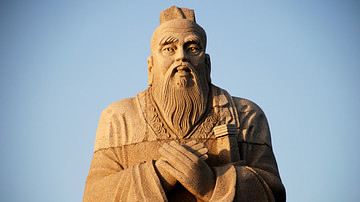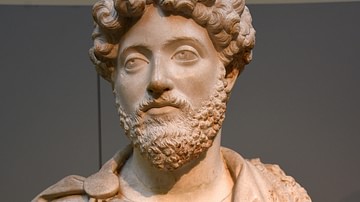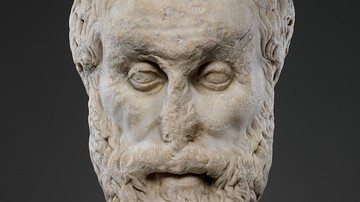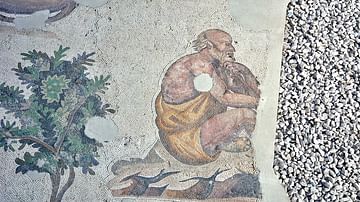Search
Search Results

Definition
Philosophy
The word philosophy comes from the Greek philo (love) and sophia (wisdom) and so is literally defined as “the love of wisdom”. More broadly understood, it is the study of the most basic and profound matters of human existence. Philosophical...

Definition
Greek Philosophy
Ancient Greek philosophy is a system of thought, first developed in the 6th century BCE, which was informed by a focus on the First Cause of observable phenomena. Prior to the development of this system by Thales of Miletus (l. c. 585 BCE...

Article
Similarities Between Eastern & Western Philosophy
Although there are certainly differences between Eastern and Western philosophical systems, they both aim at the same goal of apprehending Truth and understanding the best way to live one's life. Modern-day scholarship often makes a serious...

Definition
Roman Philosophy
Roman philosophy played a significant role in the growth and development of Western thought. While not involved directly in the development of original philosophical thought, Rome made significant contributions in two ways: by conveying Greek...

Definition
Ancient Chinese Philosophy
The term Ancient Chinese Philosophy refers to the belief systems developed by various philosophers during the era known as the Hundred Schools of Thought when these thinkers formed their own schools during the Spring and Autumn Period (c...

Definition
Anaxagoras
Anaxagoras (l. c. 500-c. 428 BCE) was a Pre-Socratic Greek philosopher who claimed the First Cause of existence was Mind (nous) and all things were constituted of indestructible “seeds” (or “stuff”), originally a single mass, separated and...

Definition
Pre-Socratic Philosophers
The Pre-Socratic Philosophers are defined as the Greek thinkers who developed independent and original schools of thought from the time of Thales of Miletus (l. c. 585 BCE) to that of Socrates of Athens (470/469-399 BCE). They are known as...

Article
Heraclitus: Life Is Flux
Heraclitus of Ephesus (l. c. 500 BCE) famously claimed that “life is flux” and, although he seems to have thought this observation would be clear to all, people have continued to resist change from his time to the present day...

Article
Gorgias' On Nature (On the Non-Existent)
Gorgias of Leontini (l. c. 427 BCE) was a famous Greek Sophist who claimed that nothing exists and, even if it does, its nature cannot be understood and, even if it could be, one is not able to communicate that understanding to another person...

Article
Passing of Philosophy to Religion: The Death of Hypatia
The death of the philosopher Hypatia of Alexandria (l. c. 370-415) has long been considered the "passage of philosophy to religion", exemplifying the transition from the pagan values of antiquity to those of the new religion of Christianity...